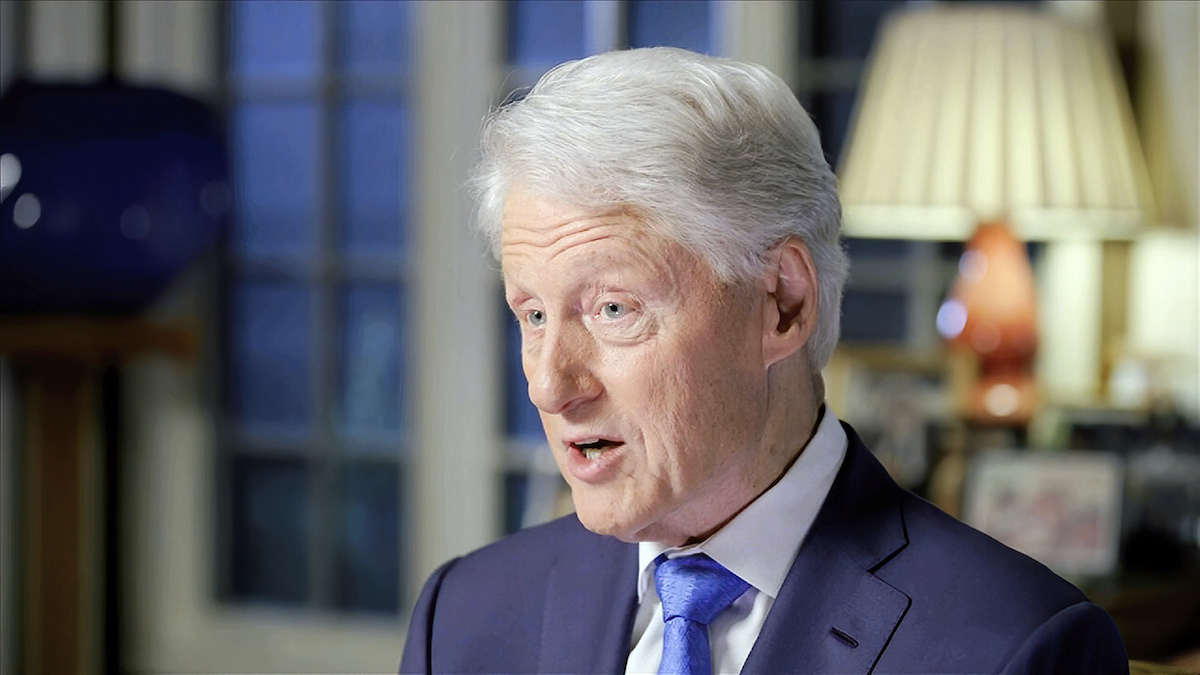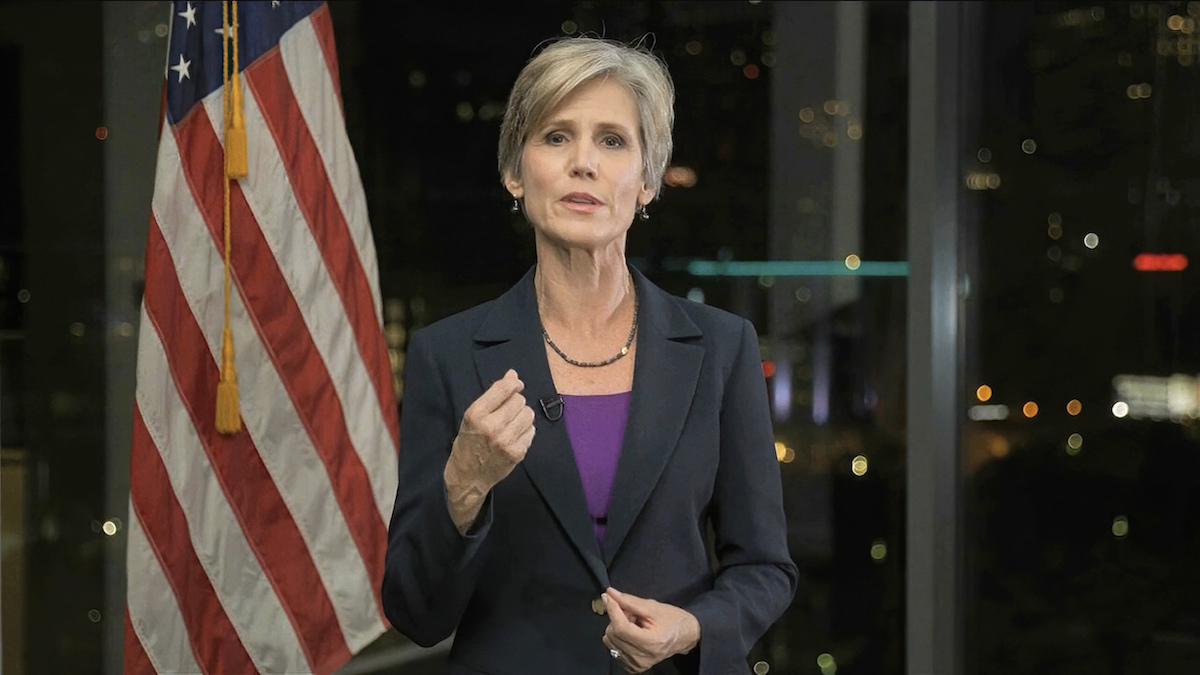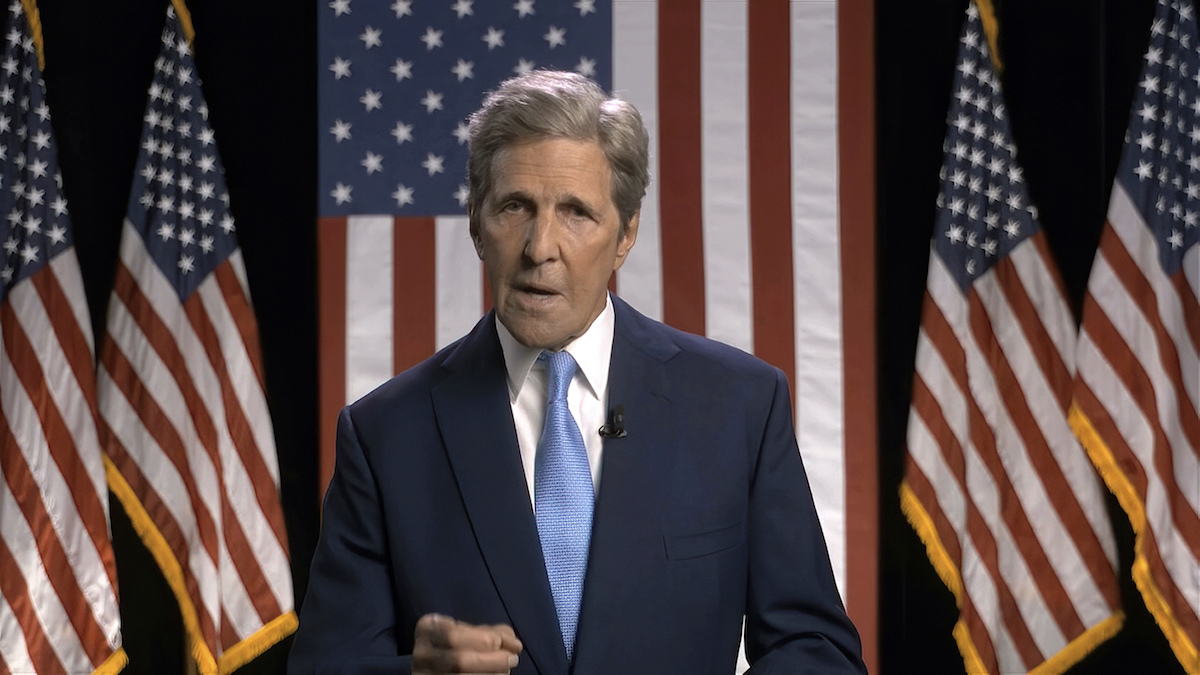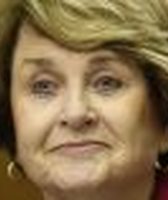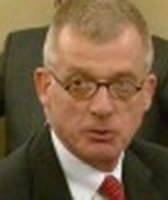Get PolitiFact in your inbox.
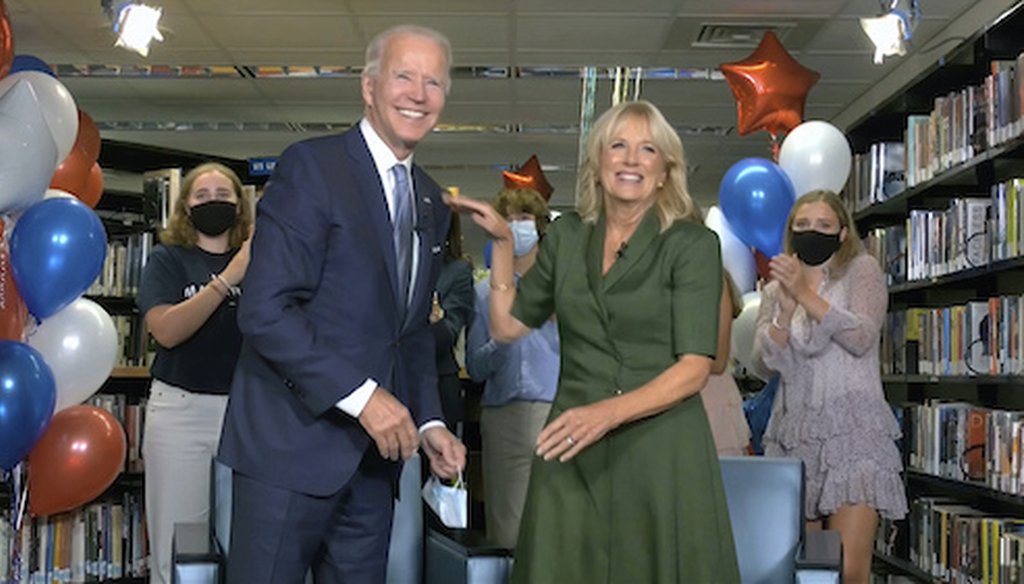
Democratic presidential candidate former Vice President Joe Biden, his wife Jill Biden, and members of the Biden family, celebrate after the roll call during the second night of the Democratic National Convention on Tuesday, Aug. 18, 2020. (DNC via AP)
The traditional roll call to formally nominate Joe Biden as the Democratic presidential nominee sent viewers on a virtual journey from sea to shining sea.
Socially-distanced presenters at night two of the Democratic National Convention included somber delegates in suits discussing topics like racial injustice, but also an Ohio man in a field talking about how people "wind up getting screwed" by President Donald Trump and a state lawmaker announcing delegate counts from the "calamari comeback state of Rhode Island," standing with a chef displaying the dish.
Instead of concluding with a boisterous convention floor celebration, the 2020 roll call of delegates wrapped up with Biden and his wife Jill showing mild surprise by family members launching party poppers in a high school library.
The remainder of the night featured former President Bill Clinton and former Secretary of State John Kerry giving their take on the state of the nation and how Biden would improve it. (We checked a few of those claims.)
But Democrats also made some clear call-outs to Trump-weary Republicans. Colin Powell, secretary of state under President George W. Bush, made an unannounced address in which he called Biden "a president we will all be proud to salute." Another video detailed Biden’s "friendship that shouldn’t have worked" with the late Republican Sen. John McCain.
Jill Biden ended the night drawing a parallel between the Biden family’s healing in the wake of tragedy and the country’s need for "honest leadership to bring us back together."
Here’s our rundown of fact-checked statements from night two of the DNC.
ICYMI: Fact-checking night one of the DNC
"Donald Trump says we’re leading the world. Well, we are the only major industrial economy to have its unemployment rate triple." — Former President Bill Clinton
Mostly True. Using the most clear-cut multi-nation comparison from the Organization for Economic Cooperation and Development, Clinton is right.
We compared January to June, because only two of the 20 countries in this analysis reported data for July. Over those six months, the United States saw its unemployment rate increase from 3.6% to 11.1%. That works out to a little under 3.1 times higher in June than January.
No other country saw such a big increase. Only Canada came close, with the unemployment rate 2.2 times higher over that period. It started with a higher unemployment rate than the U.S.
Clinton’s statement does not quite hold for the most recent U.S. unemployment rate. Extending the U.S. data to July showed that the increase fell slightly below three times.
— Louis Jacobson
Former President Bill Clinton speaks during the second night of the Democratic National Convention. (DNC via AP)
"We have just 4% of the world’s population — 25% of the world’s cases." — Former President Bill Clinton
This statistic is correct. The Johns Hopkins database of COVID-19 cases shows about 22 million global cases as of Aug. 18, including almost 5.5 million cases in the U.S. That works out to about 25% of the world’s cases. The U.S. represents about 4% of the world’s population.
As we explained in a fact-check of President Donald Trump’s false statement that "our numbers are better than almost all countries," there are other ways to compare cases globally. Those measures include case fatality rate, death rate per 100,000, per-capita cases and the positivity rate.
Measured against the size of the population, the United States has the 10th-highest death rate in the world. It’s doing better than the United Kingdom, Spain, Italy, Sweden and Chile, but worse than France, Canada and Germany, to pick a few examples.
Factoring in population size, the United States has one of the highest rates globally of people who have tested positive — 16,430 per million residents, which is lower than Chile, but higher than any other large country.
With a positivity rate of about 7%, the United States ranks in the middle of the pack, doing better than countries such as Mexico and Argentina, but worse than just about every country in Europe, as well as Canada and Australia.
— Amy Sherman and Jon Greenberg
Former Acting Attorney General Sally Yates speaks during the second night of the Democratic National Convention on Tuesday, Aug. 18, 2020. (DNC via AP)
Says Trump’s January 2017 travel ban was "unlawful." — Former Acting Attorney General Sally Yates
This statement by Yates, who was fired for refusing to defend Trump’s first order, needs more context. Lower courts blocked Trump’s three different versions of a travel ban. Then in 2018, the U.S. Supreme Court allowed the third version to stand.
The court said Trump had "lawfully exercised the broad discretion" granted to him under federal law to suspend the entry of people from several Muslim-majority nations into the United States. The Trump administration said Trump’s proclamation was issued on national security grounds.
The Supreme Court said in a 5-4 decision that the president need only determine that the entry of certain individuals would be detrimental to the interests of the United States, and Trump fulfilled that requirement. Critics of the travel ban labeled it as a Muslim ban.
While the court found that Trump's proclamation squared with his presidential authority under immigration law, the decision was limited to the facts of that case and did not have broad impacts on immigration law, experts have told us.
Trump’s travel ban still faces other lawsuits challenging its constitutionality, including one brought by the American Civil Liberties Union and other organizations, arguing that Trump violated federal laws and the Constitution’s First and Fifth amendments.
— Miriam Valverde
Former Secretary of State John Kerryspeaks during the second night of the Democratic National Convention. (DNC via AP)
Says President Donald Trump "does nothing about Russia putting a bounty on our troops." — Former Secretary of State John Kerry
Trump has not publicly condemned or warned Russia over reports that it offered Taliban-linked militants bounties to kill American troops in Afghanistan. He said he doesn’t believe the intelligence.
Trump dismissed New York Times reporting about the bounties as "just another hoax." Trump also has said he wasn’t briefed about the issue, although multiple news reports said warnings about the bounties were included in the President’s Daily Brief.
The matter "never reached my desk. You know why? Because they didn't think— intelligence, they didn't think it was real. … If it reached my desk, I would have done something about it," Trump told Axios’ Jonathan Swan in an interview aired on HBO Aug. 3.
Trump in the interview said he didn’t bring it up either in a July phone call with Russian President Vladimir Putin.
— Miriam Valverde
"Now, it's unthinkable that Donald Trump is trying to take that health care away. In the middle of a pandemic, he is still trying to get rid of the Affordable Care Act." — Narrator of a health care video segment
We checked a similar statement by former President Barack Obama and found it True.
The attack line refers to Texas v. Azar, a court case pending before the Supreme Court in which the Trump Administration has joined with a group of Republican governors in an effort to overturn the Affordable Care Act, or ACA. The ACA is Obama’s signature health care law that expanded access to health insurance to millions of Americans and went into effect in 2010.
It is estimated that 27 million Americans could become uninsured during the COVID-19 pandemic due to job losses and other factors. But the Trump administration has continued its legal challenge.
When Biden was talking to Laura Packard, who had stage IV Hodgkins Lymphoma, she said, "Ever since I was diagnosed, every night I would go to bed concerned about what news I would get in the morning. And even still, even today, they're still trying to take away our health care, even during a pandemic."
Another woman later said in a video segment focused on health care that, "I chose to become a Joe Biden delegate as I watched with our nation as President Donald Trump sought to dismantle the Affordable Care Act."
For Trump’s part, he ran for president in 2016 on the promise that he would repeal and replace the ACA. He supported a 2017 congressional effort that narrowly failed to pass repealing the bill. And since then Trump has continuously promised to produce a Republican health care bill, which would replace the ACA and protect people with preexisting conditions. He has so far failed to deliver.
— Victoria Knight, Kaiser Health News
PolitiFact Wisconsin staff writer Eric Litke contributed to this report.
Our Sources
Johns Hopkins University, Covid database, Accessed Aug. 18, 2020
Worldometer, U.S. population, Accessed Aug. 18, 2020
PolitiFact, Donald Trump says US is at the top globally in COVID-19 fight. It isn’t. Aug. 18, 2020
CNN, The US has 4% of the world's population but 25% of its coronavirus cases, June 10, 2020
